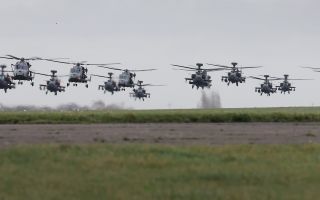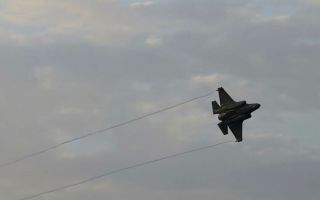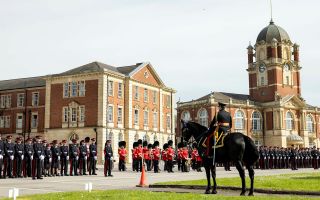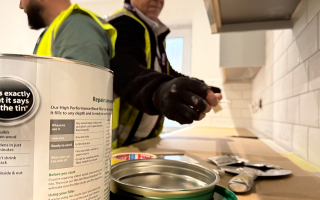Tri-Service
Comment: What's Stopping David Cameron Calling A Vote On Syria?
With the Labour leadership election and party conference season out of the way, what is stopping David Cameron calling a commons vote on RAF bombing in Syria?
The only obvious answer that presents itself is that he's still not sure of getting enough support.
Thirty conservative MP's opposed his 2013 bid to bomb President Assad's forces after a chemical weapons attack, so he wants to gather enough support from the Labour benches to counteract any rebellion this time round.
Yes, Labour, with its new leader who has never voted in favour of British military intervention.
But Jeremy Corbyn alone doesn't set the party's policies, and as a serial rebel himself, he knows he has limited scope to force his MPs into voting against their consciences.
So the Guardian comment piece written by Hilary Benn seems to show that a compromise has been reached at the top of the party.
When I spoke to the Shadow Foreign Secretary about the article he said it was not merely his view, but that of the whole Shadow Cabinet. “Jeremy and I” he said over and over again in the interview.
At its heart it’s a call for a United Nations resolution centred on humanitarian and diplomatic action, but including a broad call for 'effective action to end the threat from ISIS'.
Such a resolution should be possible he writes, given that four of the five permanent members of the UN Security Council already have bombing missions against IS.
But here's the bit that will anger some in the Labour party:
“Of course, we know that any resolution may be vetoed and in those circumstances we would need to look at the position again.”
The shadow foreign secretary appears to be saying Labour may be prepared to support military action, if the UN route is properly tried and unreasonably blocked.
The Labour Party conference voted to tell MP's they should not support military action unless there was unambiguous authorisation from the UN.
Even if Mr Benn's suggested resolution were adopted, many would not see a call for 'effective action' as unambiguous authorisation.
But it is the ambiguity in the Shadow Foreign Secretary's article that allows it to be approved by all at the top of Labour.
More from Forces TV: Jeremy Corbyn And Defence
So where does it leave David Cameron?
It looks to me like Labour has put the ball back in his court by setting out a course of action they expect to be taken before even considering RAF strikes in Syria.
But while Labour have promised nothing, it would seem hard for them to vote against RAF action if David Cameron delivers what they ask for.
The Prime Minister had his fingers badly burned in 2013.
He thought he had delivered the assurances Labour wanted only to have Ed Miliband change his tune at the last minute and inflict defeat, so he will be wary this time.
But in the end nobody really expects Jeremy Corbyn himself to vote in favour of British air-strikes anywhere in the world.
So Hilary Benn is not so much paving the way for possible Labour backing, as a vote of conscience within his party.
That could be enough though, with up to fifty Labour MP's reportedly considering backing British military action for humanitarian protection.
More from Forces TV: Syria: The British Military Option









